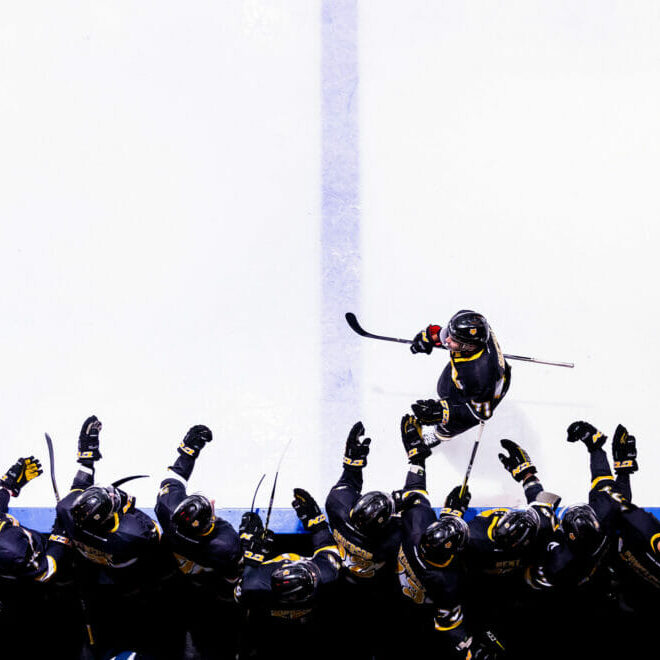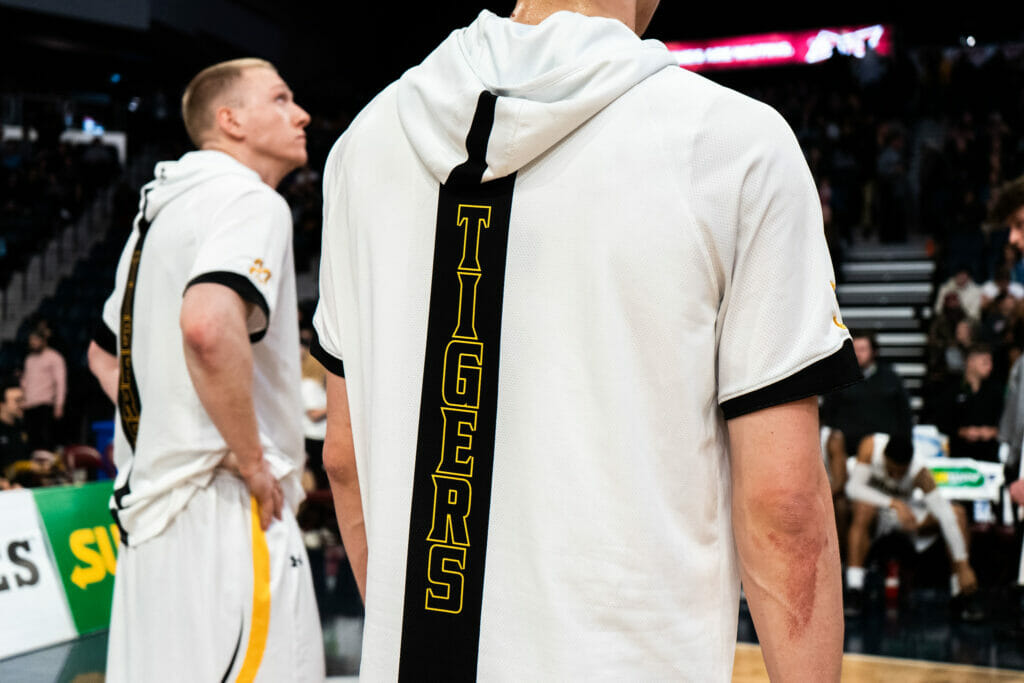
Tigers extend training season
Cancelled games means changing team focus
A major local sports casualty of the COVID-19 pandemic is Atlantic University Sport’s (AUS) regular season.
In November, the conference announced it would not sanction a season and only member-driven competition may be possible in the winter semester. Like the fall semester, teams will be limited to training and maybe some exhibition games.
The winter semester will largely be what teams make of it. With that, Rick Plato, the Dalhousie University Tigers men’s basketball team’s head coach, set a goal for the extended off-season.
“I told the guys in September that we would come out of this [break] better than any school in the country,” said the coach of the 2020 U Sports men’s basketball Final 8 silver medallists.
Dal teams have had the fortune to practice together for nearly the whole first semester and several teams are back from the winter break ready to pick up from where they left off in the fall. Compared to the rest of Canada, including regions subject to lockdowns, Tigers teams have trained together more than most U Sports schools. At the same time, some athletes hoped season play would be underway by now.
“Me and my teammates had a lot of optimism at the beginning of the season. We thought there might be a chance. When we got the news that we wouldn’t be playing, it kind of took us by surprise,” said Kelly Bent of the men’s hockey team. “But we still expected it in a way. The [Halifax] Mooseheads weren’t playing and minor hockey was in and out of playing [when the announcement was made].”
Tigers track and field team member Lorena Heubach said her team saw the announcement coming when COVID-19 cases rose in Atlantic Canada in early November.
“The coaches came up with a mock competition schedule to make up for the season. This way, we’re still able to have competitions within the team and we can set goals for the season,” said the reigning AUS women’s field athlete of the year.
Another semester of challenges

Student-athletes and coaches said they’ve slowed things down this season. Rather than actively preparing for game after game, individual skills and team building have garnered more focus. Bent said the hockey team is on the ice about three times a week instead of the usual five practices and some games.
“I really feel for the young guys on the team because the team’s together less,” Bent said. “It’s tough for them. You come into a new university, you want to be around the guys, you want to get to know your teammates and practice with them. We still get to meet each other, but it’s been a tough year.”
Motivation, Heubach said, is hard to come by in a year without regular competition or routine preparation for competition.
“Training has been low-key. It’s hard to stay on my game and on training schedules because health regulations are changing. We had a consistent training schedule going in the fall, and then gyms shut down and we couldn’t practice anymore. You pretty well have to start that training cycle again,” she said. “I’m in quarantine, so that’s two weeks of less physical exercise, which isn’t good for training either. Getting started again is another challenge too, especially without that real end goal.”
Student-athletes have remained committed to their teams throughout the pandemic. Some team meetings and training happened over Zoom last spring and now many players are returning to Halifax for the season’s second half. Plato said his players remain disciplined and showed maturity despite adversity.
“I can’t say enough about how committed and mature everyone has been. You’ll see on the news about how students are partying and all that, but we know we can’t do that,” Plato said. “Most of the guys, those in residence anyway, their life is staying in their room and studying. They’ll go to the gym. They’ll go the weight room, and then back and forth.
“The whole routine’s different too. Campus is like a ghost town. No one’s around. We don’t have the chance to have team meals in residence. Recruits can’t come visit and we would have played almost 20 games by now. It’s different, challenging and disappointing. But it’s the reality of what it is. We have to cope with it.”
Team building
Much like during a rough patch in a season, players build character, which in turn improves entire teams. Improvement has emerged as a theme for many Tigers this year, whether it’s coming out of the cancelled season as the best in the country or simply as better versions of themselves.
“We’re looking to come out of this with more resilience and a team dynamic. It’s harder to get together as a team and build those relationships you would normally have with them,” Heubach said about challenges she and her team want to address this winter. “Hopefully, in this time, we can still bring the team together more in some way.”
Bent said he believes the chance to take a step back and use this year to improve in practice will pay off in the standings next year.
“We had the opportunity to practice as a team this year where other schools, even in Atlantic Canada, didn’t. We’ve been lucky to be around one another since we’re COVID-free so far,” he said. “The young guys can still get a good experience from it and learn from this.”
Introducing new players to the program is important this season for Plato too. He said this advantage is perhaps the largest positive with few other schools in Canada training right now.
“One of the team’s biggest assets is our chemistry and how everyone gets along. Our young guys have the opportunity not just to get to know the other guys, but learn how we do things around here and get used to playing at the university level,” Plato said. “I’ve been pleasantly surprised. It won’t be long until our older players are done, so by the time they all go, the younger guys are ready to take over. There’s no question we’ll come out of this a lot stronger.”






